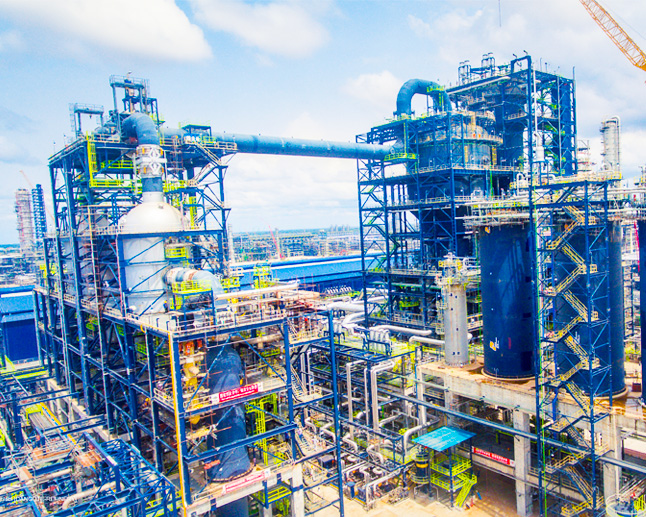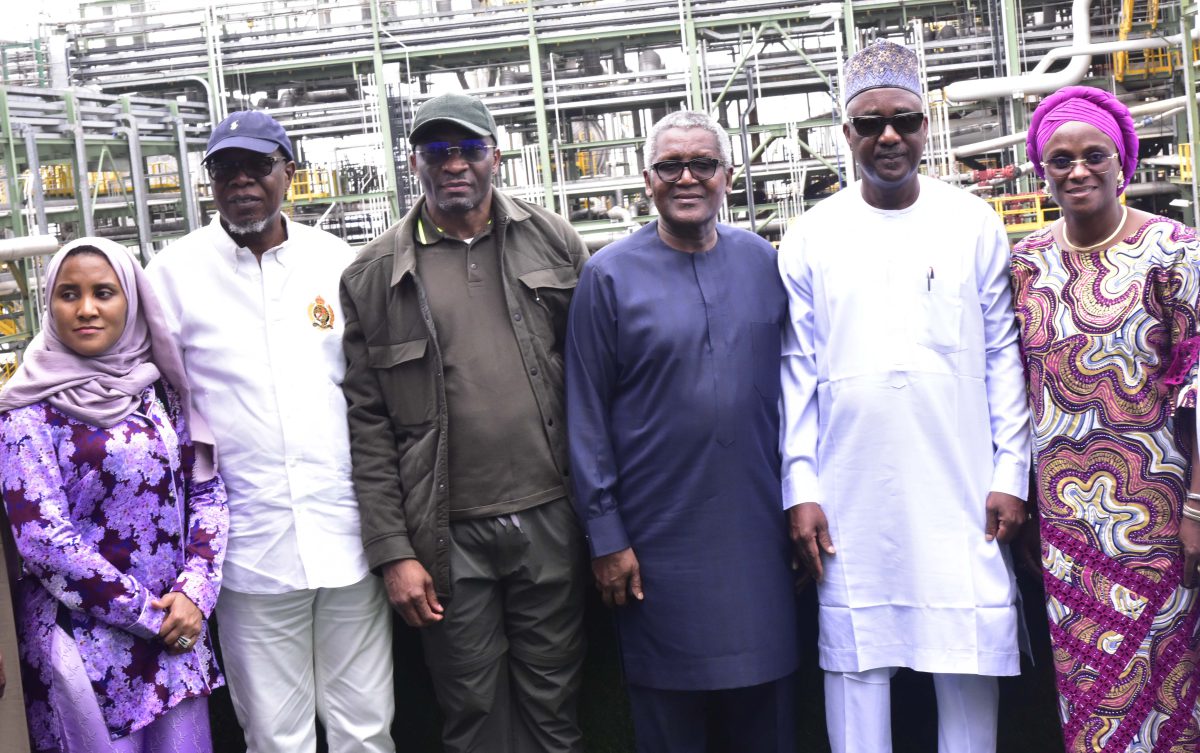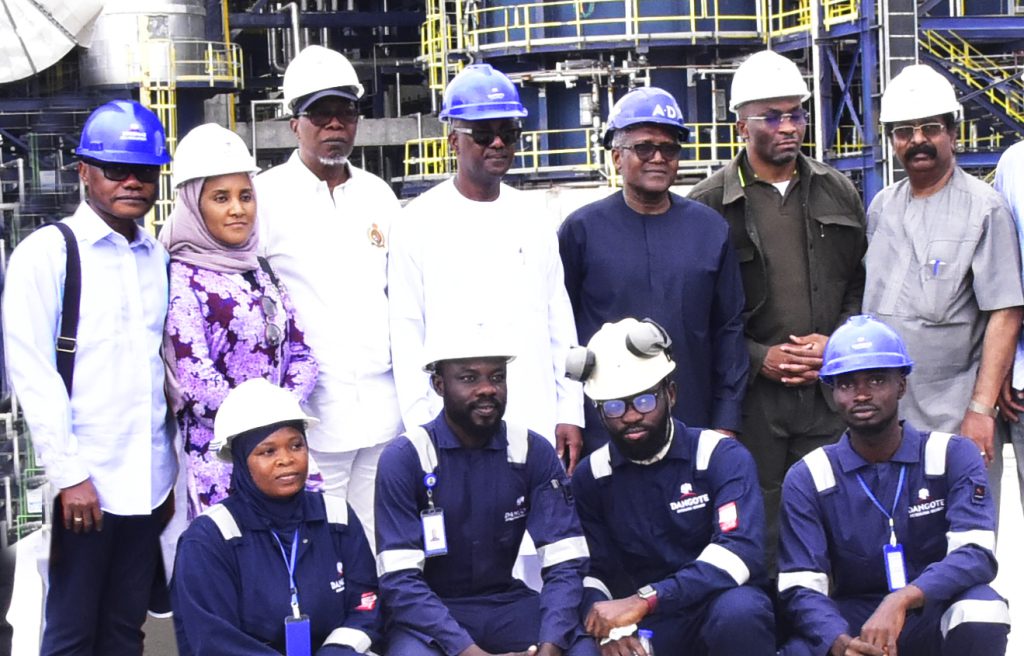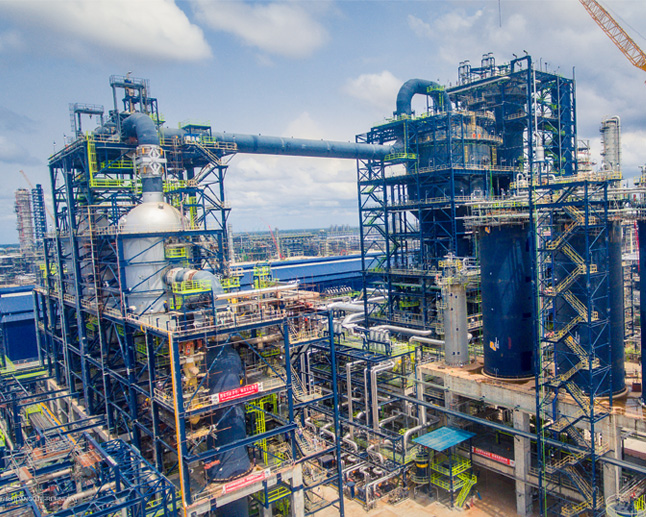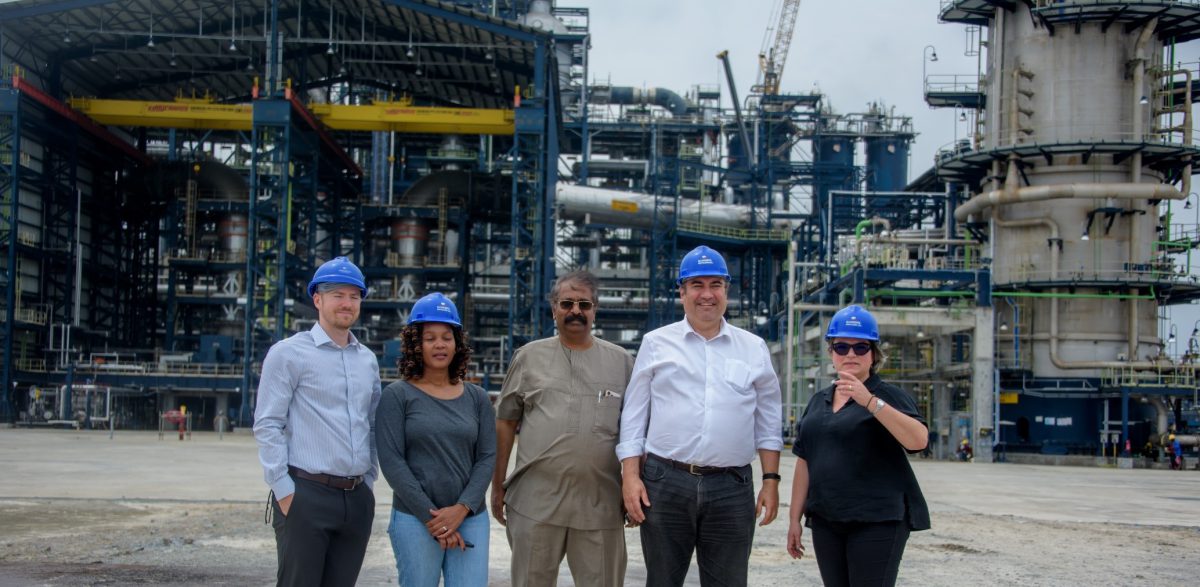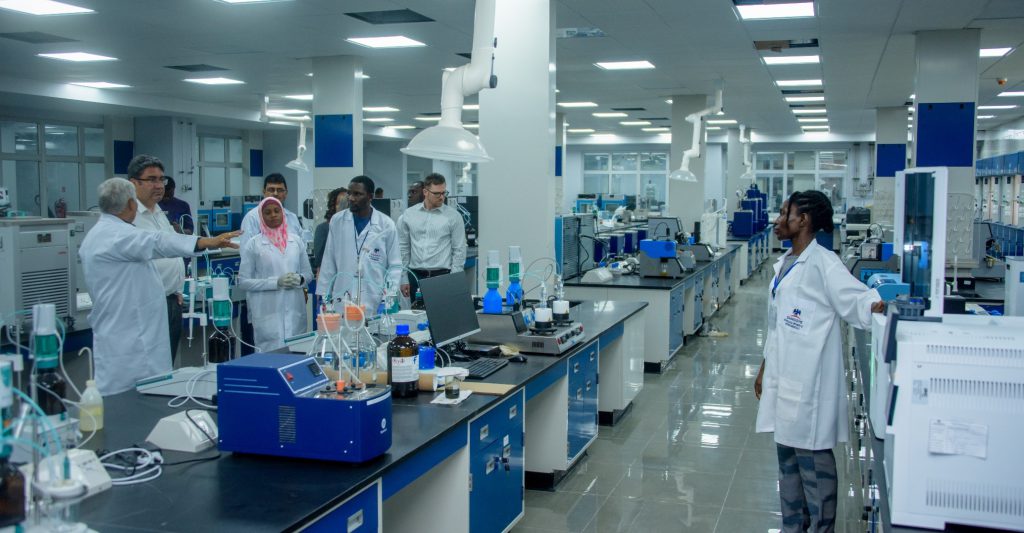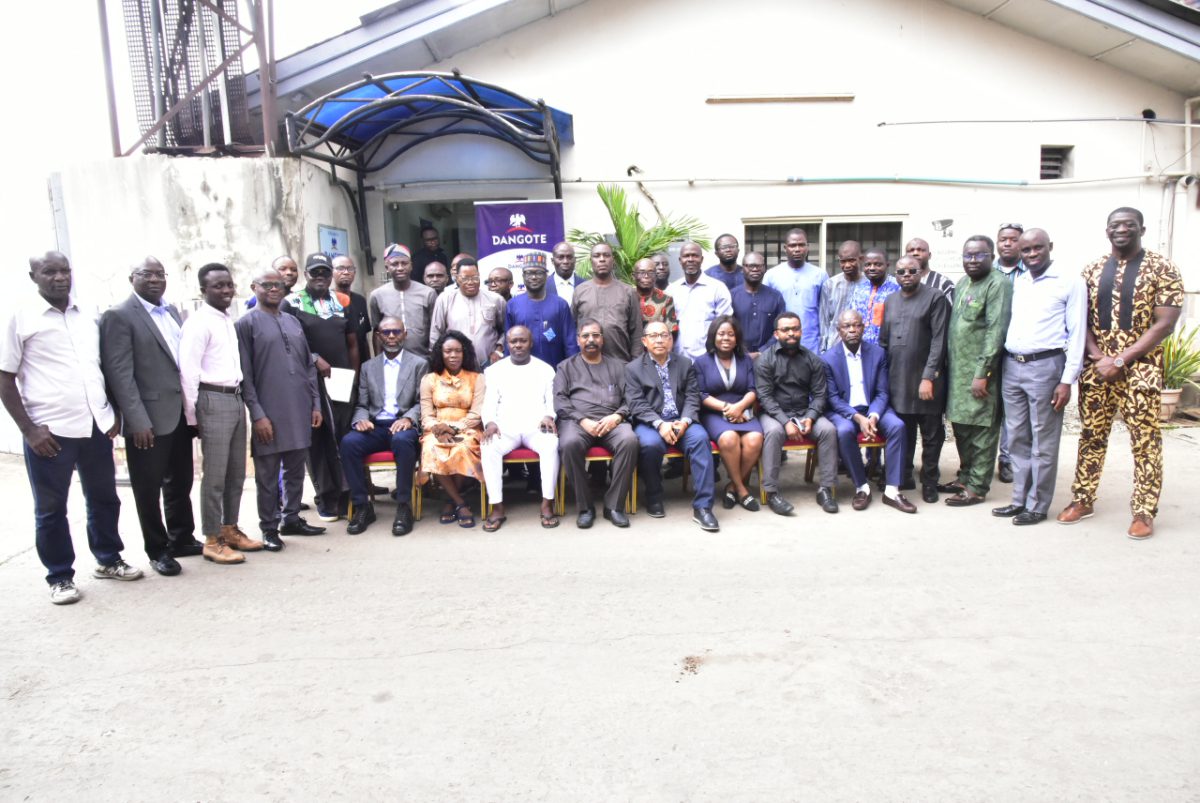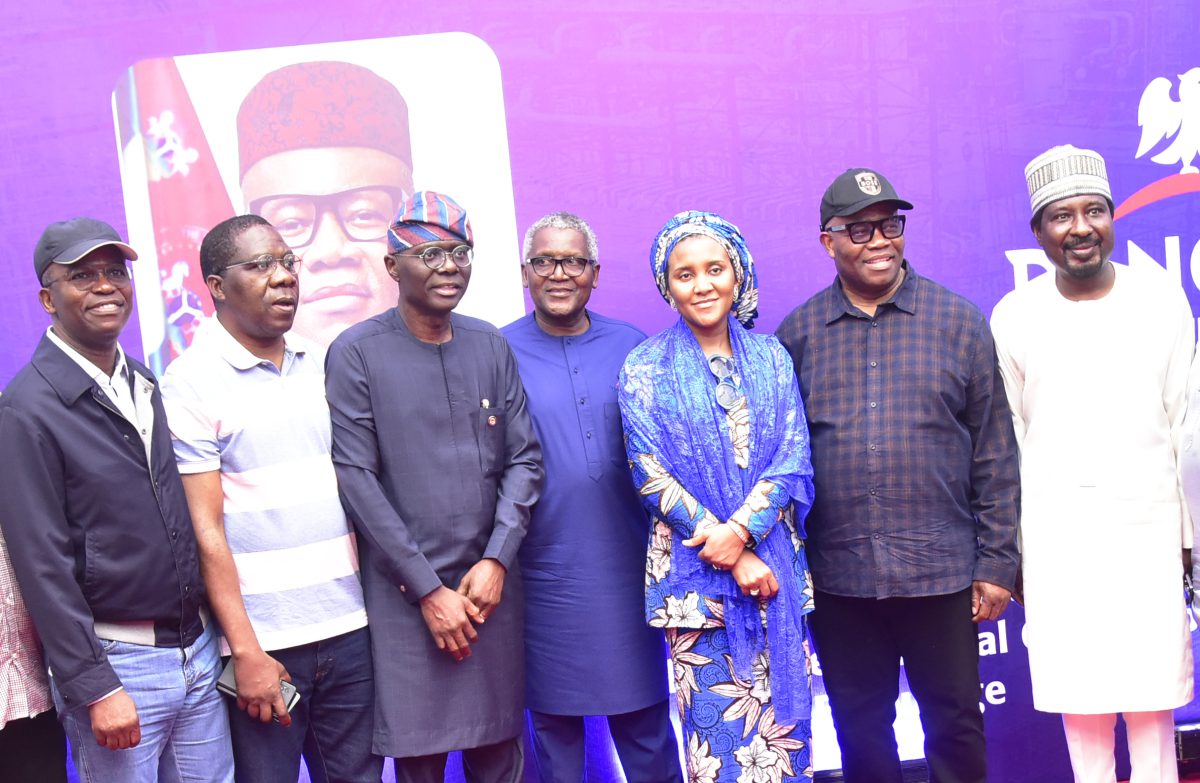…says ordinary Nigeria Vice-President’s residence takes 14 years to complete
The Senate leadership yesterday described the 650,000bpd Dangote
Petroleum Refinery as the 9th wonder of the world but came hard on
those who are skeptical of the completion of Dangote Petroleum Refinery
describing them as dream killers.
Indeed, the Senate President, Godswill Akpabio, who led the leadership
of the 10th Senate on a tour of the Refinery in Lagos said
detractors of the refinery have all been silenced and that indeed, previous
governments have been put to shame with the completion of the project.
He assured that the National Assembly will give it what it takes to
protect the project because its one project that Nigeria and indeed Africa
should take the ownership and must be protected jealously.
Commending Alhaji Aliko Dangote for completing the construction of the
largest single train refinery in the world in a record time, the Senate
President said Dangote deserved all the accolades for this feat noting that
ordinary residence of Nigeria’s Vice-President could not be completed until
after 14 years.
Said he: “They told us in Abuja that Dangote Refinery is farce but we
have come here and see for ourselves that the refinery is alive and running.
Dangote has put to shame a lot of people. They are wondering how it will be
possible for a single individual to accomplish what a whole nation could not
accomplish; what 240 million people could not maintain; what a continent could
not do and then one person will build 650,000bpd project.
“They keep wondering how one person can succeed where nations have
failed; where continent has failed. But Dangote has done it. It is highly
commendable. We came to see the refinery because we in the current senate
believe in the Nigerian dream. We didn’t come as a doubting Thomas but we came
because we believe the project, we came to rekindle the hope of Nigerians and
the Nigerian’s can do spirit.”
Senator Akpabio stated that the whole Nigeria couldn’t make refineries
function in Kaduna, Pot Harcourt, Warri, but that Dangote and his team have
proven that it is possible to dream and achieve it in Nigeria.”
Akpabio said the shame that came with the discovery of oil in Nigeria in
1958 has been removed by Dangote alluding to a report that India does not have
oil but his refineries from where the country exports refined products. The
inability of the nation to refine its oil has brought untold hardship on
Nigerians so much so that Belgian government recently ban the exportation of
dirty and condemned fuel to the country to West African country just because we
can’t refine our own products.
Describing the refinery as quite unbelievable, Senator Akpabio who was
sandwiched by other senators comprising of the Deputy Senate President, Senate
Leader, Senator Opeyemi Bamidele and a host of others said the Senate and the
entire National Assembly would come up with a robust legislation that would
protect the project and others like it.
He stated: “Mr. Dangote, I pity you a lot because even your friends will
envy you simply because they will keep wondering how can you succeed when
nations, and continents have failed? Now that we have seen for ourselves, we
are here to announce our own endorsement of this major project. It is also
shocking to see that we produce sufficient fertilisers for Nigeria and enough
to be exported.
“As I said we will do our report and we will speak to Mr President
to put a stop to fertisliser import to Nigeria. You will hear from us soon.”
Also speaking, Lagos State governor, Babajide Sanwo-Olu, enthused that
it is a privilege that the refinery happened in “our time, our state and
our country. People talk about dreams, but only few can make it happen. Dangote
has put Lagos State and the whole of Nigeria on the world map of excellence.
“I am happy the senate came to see for themselves; Dangote was not
ready to rest after successfully building the largest cement factory chain in
Africa, second largest sugar refinery in the world. With investment like this,
I can assure you that we are on the right path to meet the projected GDP of
$1trn by 2030.
“You have the key to city, I have given you long time ago and I am
happy you are using it very well,” Governor Sanwo-Olu stated.
In his remark, Mr. Dangote explained that the “visit could not have
come at a more auspicious time than now just as the organization is in the
process of bringing the various units of this complex integrated refining
processes on stream, an eagerly awaited move.”
He stated further that the Dangote Refinery “produces a wide range
of high-quality petroleum products, including premium motor spirit (petrol),
diesel, kerosene, and jet fuel, all meeting the highest international standards
(Euro V Grade). The Refinery apart from adding value to our crude oil, will
yield 900,000 KTPA of Polypropylene and 36,000 KTPA of Sulphur and carbon black
as by products.
“The Refinery will help boost Nigeria’s economic growth, with the
creation of thousands of direct and indirect jobs. During the construction
stage, it supported over 150,000 jobs, made up of mostly Nigerians. These
Nigerians in the process acquired various skills that are still useful in other
construction projects.
“The capacity of the refinery is enough to satisfy domestic demands
for refined products. The Refinery will export about 50 per cent of its
production thereby generating foreign exchange for the country. It will
lead to growth in adjacent sectors such as logistics, shipping, engineering,
and servicing.
“The Refinery has the requisite capacity to provide energy security
both by providing a ready home for our crude and in ensuring steady
availability of petroleum products for all. Nigerians will also get to partake
in the financial returns once we list the Refinery on the NGX.
“We are thus making an important contribution to this
administration’s plan to grow our GDP to $1 trillion.
“Our Group is at the vanguard of job creation and employment
generation in Nigeria. We are the biggest employer of labour after the Federal
Government. Dangote Cement sustains about 70,000 (Seventy thousand) direct and
indirect jobs across Africa, while the Refinery, Petroleum Chemical Complex and
Fertiliser will be able to create over 150,000 (One hundred and fifty thousand)
direct and indirect jobs.
“We have remained one of the biggest contributors to government
coffers as our three subsidiaries, Dangote Cement, Dangote Sugar Refinery and
NASCON Allied Industries paid a total of N788.98 billion as tax and N276
billion in VAT in three years.
“We envision in Nigeria the equivalent of Jamnagar in India where
crude oil refining is the backbone of specialised industrial zones,
transportation networks, and ancillary industries, contributing to the overall
industrialisation of the region. Or Saudi Arabia’s Jubail Industrial City,
which is also undergirded by large scale petrochemical complexes.
“The Legislature has a great role to play in this. Globally, the
Legislature plays a great role in protecting and supporting domestic industry.
I am sure that the members of the 10th National Assembly are more than equal to
the task. Supporting the Refinery secures the benefits. It will ensure energy
security. As co-creators of value, we appreciate and acknowledge your
consistent efforts in ensuring the enactment of vital laws promoting a
conducive business environment in the nation,” he said.
